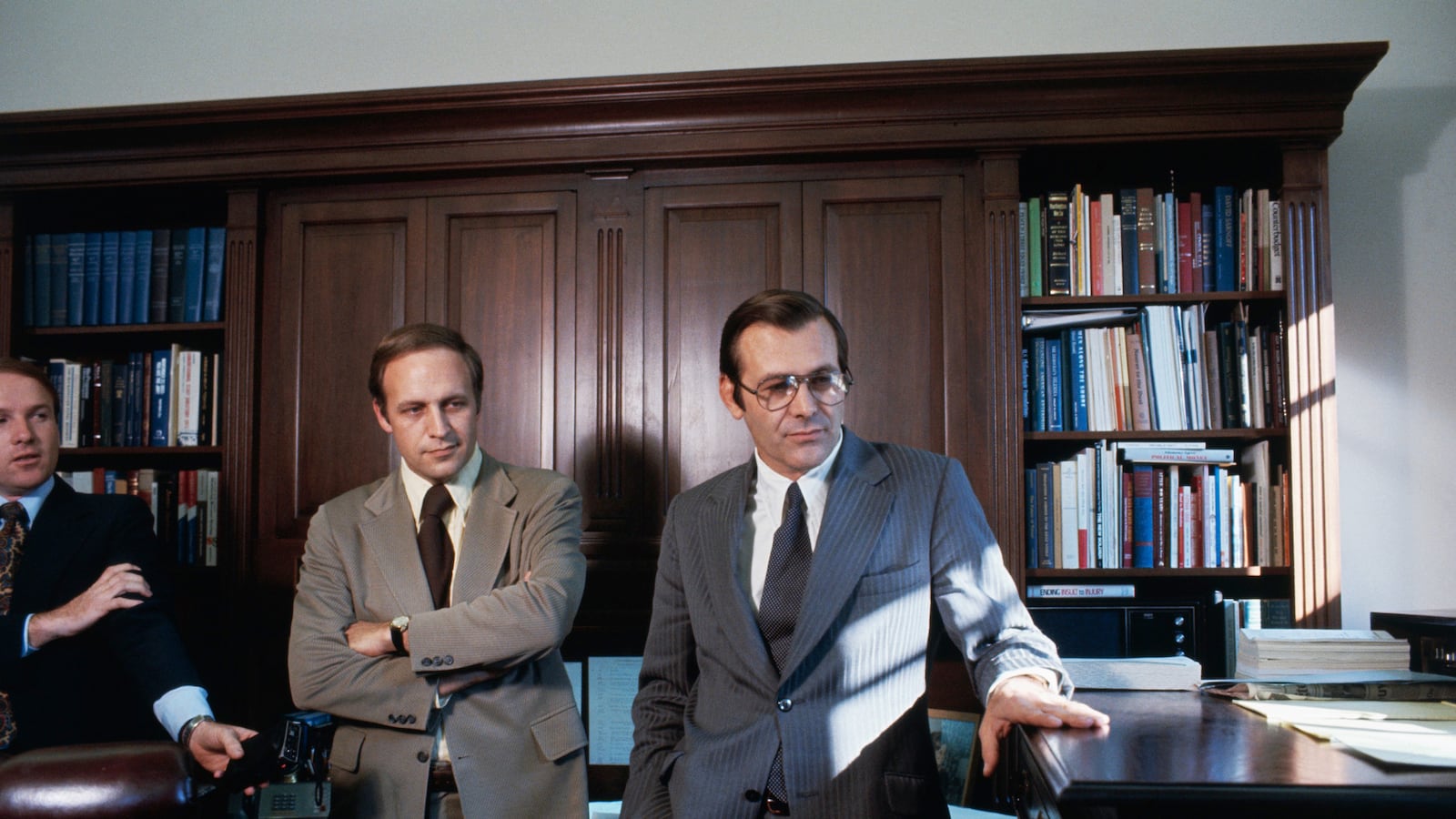He’s been called everything from Darth Vader to Dr. Evil.
And now, Dick Cheney, the 46th vice president of the United States under George W. Bush and one of the most controversial and reviled figures in American politics, has been given the royal documentary treatment in The World According to Dick Cheney.

Directed by Greg Finton and R.J. Cutler, who has previously documented imposing figures like Anna Wintour (The September Issue) and Bill Clinton (The War Room), the film features hours and hours of exclusive sit-down interviews with Cheney and a coterie of his closest associates and critics, including former defense secretary Donald Rumsfeld, Cheney’s ex–chief of staff David Addington, and journalist Bob Woodward. (Noticeably absent are Scooter Libby, George W. Bush, Karl Rove, and members of the Cheney clan.)
The first 40 minutes of the film focus on Cheney’s early screw-ups, including flunking out of Yale twice and getting popped for two DWIs. Then the tides turn, as Cheney makes his political rise after being nominated as Donald Rumsfeld’s boy Friday in the Nixon administration—a position that propels him to White House chief of staff under President Ford, the youngest ever to hold the title. Eventually Cheney ascends to the lofty perch of vice president—where he enjoys an unprecedented (and unsurpassed) level of influence—under George W. Bush, appointing the majority of his cabinet and overseeing virtually the entire governmental transition after Bush takes office. Cheney is even shown to have “walk-in rights,” whereby he could literally walk into any meeting unannounced and do whatever he wanted, making him, as one talking head calls Cheney, “the last word.”
In the past, Cheney has been pinpointed as the man responsible for advocating the usage of “enhanced interrogation techniques” (translation: torture) in the wake of the 9/11 attacks, and it is this subject that is perhaps the most eye-opening, especially in light of the recent torture controversy enveloping the film Zero Dark Thirty, chronicling the CIA’s decade-long hunt for Osama bin Laden.
On torturing terrorist detainees, Cheney matter-of-factly states his case. “Isolation in the cell or loud music. A face slap was allowed—it had to be open-handed. You could push them up against a wall. Certain things like that. Putting an individual on an incline, their head down lower than their feet, putting a towel over their face, and then pouring water slowly on the towel; it creates a sensation of drowning.”
When the director-interviewer asks him, “When you talk about drawing the line, you don’t consider a prolonged period of creating the sensation of drowning ... You don’t consider that torture?” Cheney’s response is downright bizarre and incredibly indicative of his “no regrets” stance that is repeated again and again throughout the film:
“I don’t. Tell me what terrorist attacks you would have let go forward because you didn’t want to be a mean and nasty fella? Are you going to trade the lives of a number of people because you want to preserve your ... your honor? Or are you going to do your job, do what’s required—first and foremost, your responsibility to safeguard America and the lives of its citizens? Now, given a choice between doing what we did, or backing off and saying, ‘We know you know that there’s a terrorist attack against the United States, but we’re not going to force you to tell us what it is because it might create a bad image for us,’ well, that’s not a close call for me.”
His old buddy Rumsfeld chimes in, adding, “We’ve had successive intelligence-agency directors say that the information gained from those interrogations produced a major amount of the information that we had about al Qaeda.”
Cheney is also completely and utterly unapologetic about the Iraq War, which cost countless lives—and trillions of dollars—even though it was sold to the public on the false premise that Saddam Hussein was creating nuclear weapons.
Saddam “had the personality, he had the technology, he had the know-how, he had a lot of the raw material, and he had the desire to get back into the business big time,” Cheney says.
The film also devotes a great deal of time to the Joe Wilson–Valerie Plame affair, and the subsequent conviction of Libby—a longtime Cheney pal—on obstruction-of-justice charges. The outing of Plame as a CIA agent by U.S. Deputy Secretary of State Richard Armitage, Libby’s conviction, and Bush’s refusal to pardon him were a huge source of strain on Cheney and Bush’s relationship, and it was never repaired. A few areas the nearly two-hour film neglects to cover are his family, including his daughter’s lesbianism and his longtime stance against gay rights, shooting his friend, his time as secretary of defense under Bush Sr., the assassination attempt against him, and the hunt for bin Laden.
All things considered, Cheney remains convinced that he did a helluva job.
“This is one of those situations where it’s not so much what you achieved, but what you prevented,” he says. “Now, you’ve safeguarded against further attacks against the United States. I think that’s a major accomplishment.”
Cheney adds, “I think that because the president wanted it to be a consequential vice presidency, it was. I think we did a very commendable piece of work under difficult circumstances, with the full understanding that it wasn’t popular with everybody and we were going to take a lot of incoming fire ... I did what I did, it’s all on the public record, and I feel very good about it. If I had to do it over again, I’d do it in a minute.”
He then cocks his head to the side and glares at the camera.






